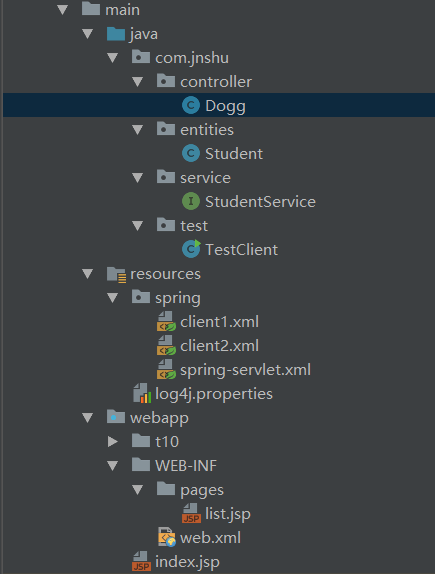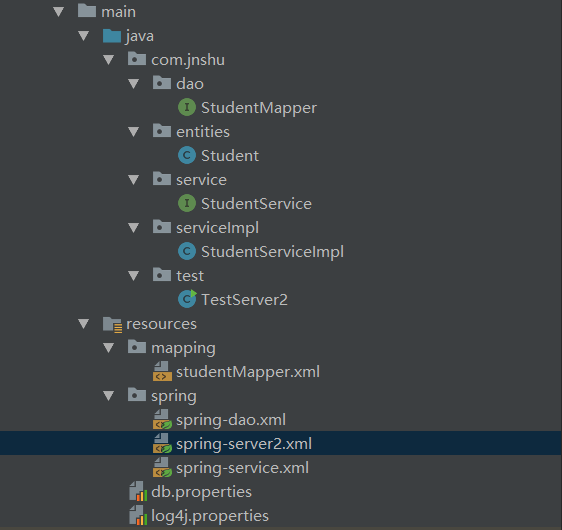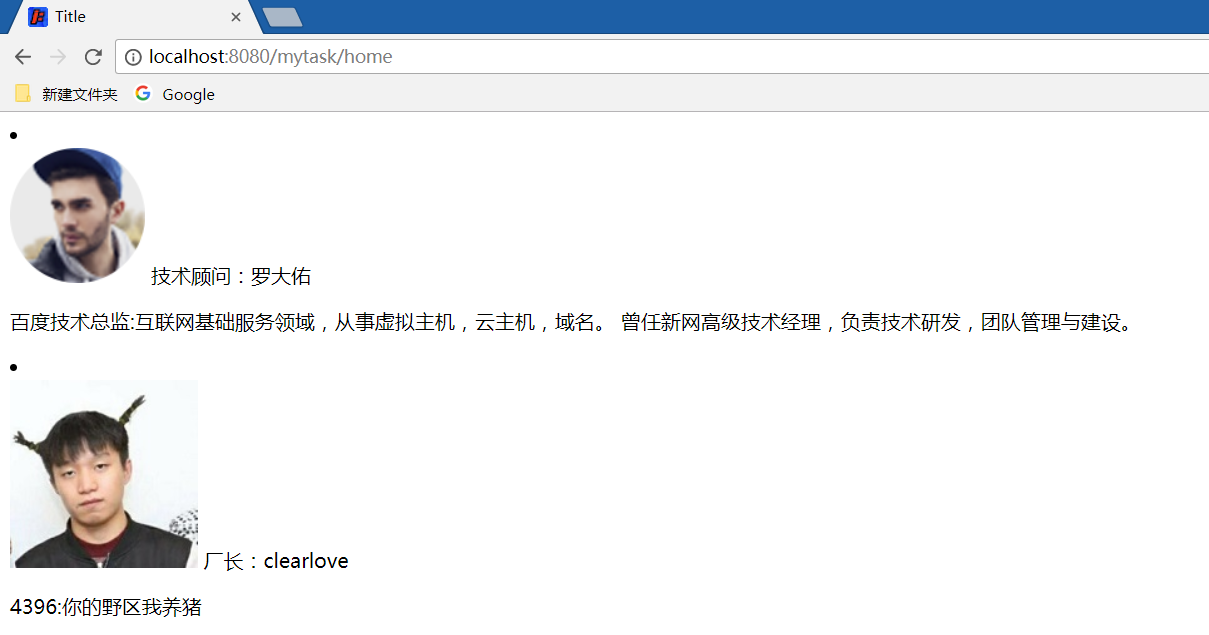发表于: 2017-10-10 22:03:44
1 754
今天完成的事情:
在项目中整合rmi
用了两个server和两个client
思路和之前一样没什么区别,客户端只实现了一个student页面

controller
@Controller
public class Dogg {
private static Logger logger=Logger.getLogger(Dogg.class);
//显示所有学生列表
@RequestMapping(value="/home",method =RequestMethod.GET)
public String showStudent(Model model) {
logger.info("查询所有用户信息");
List<Student> studentList = null;
double m = Math.random();
int rr = (int) (m * 10);
System.out.println("产生随机数是:" + rr);
if (rr % 2 != 0) {
try {
ApplicationContext ctx = new ClassPathXmlApplicationContext(
"spring/client1.xml");
StudentService studentService = (StudentService) ctx.getBean("StudentService");
studentList = studentService.studentAll();
logger.info("访问server1");
} catch (BeanCreationException e) {
ApplicationContext ctx = new ClassPathXmlApplicationContext(
"spring/client2.xml");
StudentService studentService = (StudentService) ctx.getBean("StudentService");
studentList = studentService.studentAll();
logger.info("访问server1失败,访问server2");
}
} else {
try {
ApplicationContext ctx = new ClassPathXmlApplicationContext(
"spring/client2.xml");
StudentService studentService = (StudentService) ctx.getBean("StudentService");
studentList = studentService.studentAll();
logger.info("访问server2");
} catch (BeanCreationException e) {
ApplicationContext ctx = new ClassPathXmlApplicationContext(
"spring/client1.xml");
StudentService studentService = (StudentService) ctx.getBean("StudentService");
studentList = studentService.studentAll();
logger.info("访问server2失败,访问server1");
}
}model.addAttribute("studentList",studentList);
return "list";
}
}
两个server单开了两个项目

也很简单,这里调用了数据库,实体类要实现序列化
public class Student implements Serializable {
private static final long serialVersionUID = 1883838732853579826L;
SUID的作用就是确定在运行期间序列化和反序列化的类是一样的版本。如果序列化之后改了类,那么反序列化的时候就会抛异常
启动两个服务端
启动客户端


启动了客户端2,访问到了server2
关闭server2,刷新页面

随机了两次之后可以看到,再启动客户端2的时候连接server2失败了,就又去启动客户端1了
关闭server1

报异常了,无法连接
关于这两个端口
<!-- 为RMI服务端远程对象注册表设置端口号-->
<property name="registryPort" value="11010" />
<property name="servicePort" value="11010" />
registryPort是服务注册端口,这个必须要指定,默认使用1099。这个是客户端连接使用的端口
servicePort是服务的数据传输端口,该端口是真正服务端与客户端进行数据通信交互的端口。在注册端口发现有客户端连接后,进而后续分配的端口。默认为0表示匿名随机端口。
还准备了一波小课堂,明天讲






评论